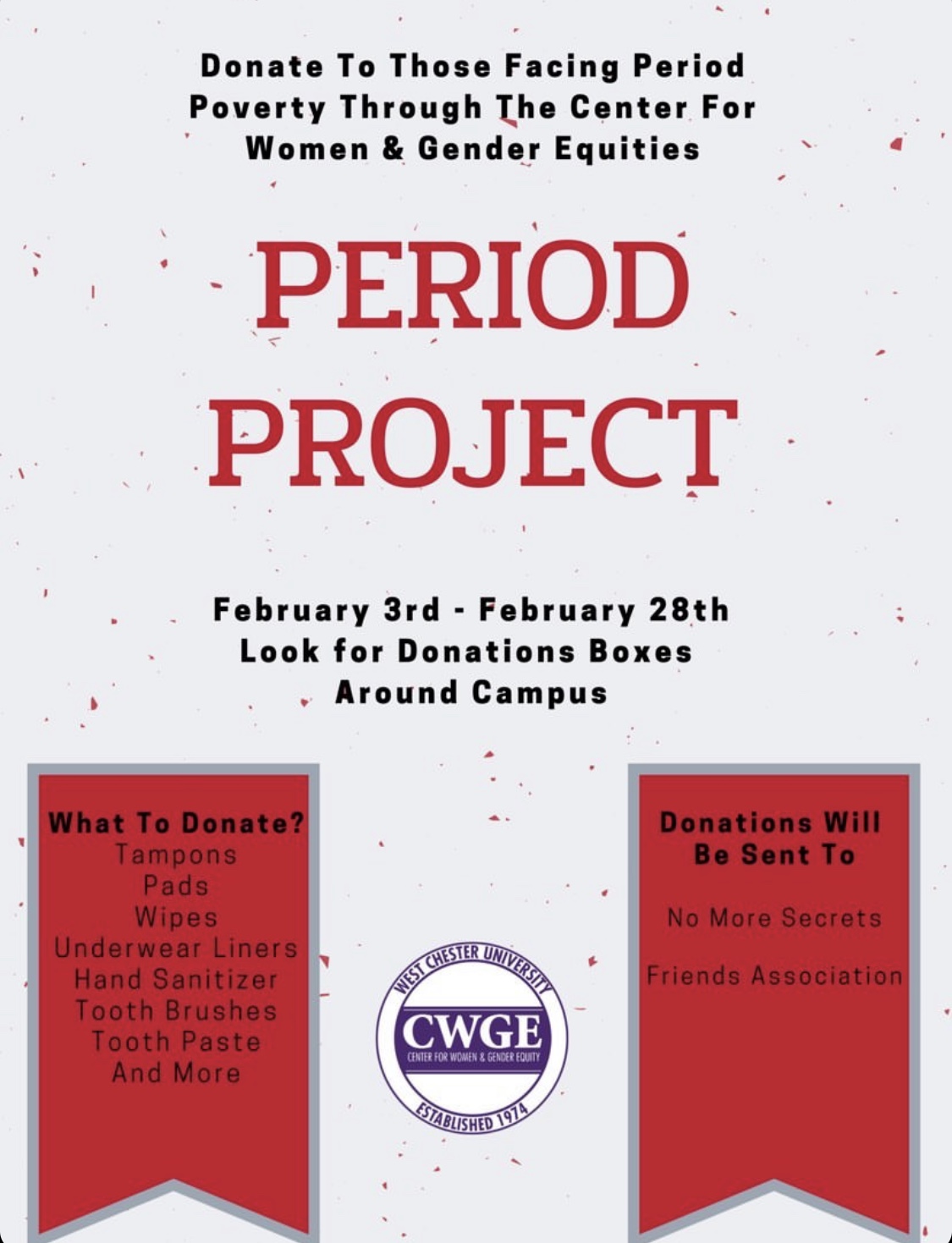Photo by CWGE via Instagram
Since its establishment in 1974, the West Chester University Center for Women and Gender Equity (CWGE) has been a prominent force in both the promotion and advocating for “a campus community that values the safety, equality and intellectual advancement of women and other historically marginalized groups.”
The center works hard to promote causes that they feel not only deserve attention and representation, but that align with their equity efforts as an organization. They draw attention to causes both on and off-campus, with everything from Trans Remembrance Day to the It’s On Us campaign, the CWGE is a much-welcomed force for change and advocacy.
Almost monthly, the CWGE works to facilitate co-curricular initiatives that address a wide range of issues which currently affect the success and well-being of women in all surrounding communities. February is no different – this month, the center is working to #EndPeriodPoverty. Throughout the entire month of February, the CWGE will collect menstrual items to donate to those who face period poverty, which is the inability to access menstrual hygiene products. Under what they call the Period Project, the center asks for tampons, pads, liners, hand sanitizer, tooth brushes, toothpaste, wipes and more to be donated directly to the Center for Women & Gender Equity, Lawrence 214, or at one of the donation boxes placed around campus.
All of the donations will go to No More Secrets, an organization out of Philadelphia that fights to end period poverty, or the Friends Association for Care and Protection of Children, which provides programs and services to help to prevent homelessness and promote stability/independence for at-risk families in the West Chester area.
In the details provided by the CWGE’s RamConnect, they ask WCU students and faculty to imagine this: You’re going about your day, and your period comes unexpectedly. You can go home, shower and get the supplies that you need. Now, imagine getting your period while you experience homelessness. You may not be able to do laundry or shower consistently or afford a box of tampons or pads. Contribute unopened tampons and pads for menstruating people in our community.
Period poverty is a very real thing, even in the United States. The average woman spends 2,535 days of her life menstruating. It’s not a matter of choice or habits– menstruation is simply biology, and yet, 35 states in the U.S. have a tax on period products because they’re considered “non-essential goods.” The average American woman needs to be able to purchase or somehow obtain access to enough tampons, pads or menstrual products to bleed for nearly seven years of her life. Seven years. I can assure you that’s not a choice.
Period poverty impacts a multitude of different groups across the United States; from young girls who have to miss school because they lack the resources needed to manage basic menstrual hygiene, to women who rely on public benefits like food stamps for their basic needs, where essential periods products are not included. Menstrual inequity is a jarring and often overlooked issue.
According to a recent study commissioned by the feminine hygiene production company Thinx, one-in-five teens have struggled to afford period products or have not been able to purchase them at all, and one in four teens have missed class due the lack of access to menstrual hygiene products. These statistics are why the efforts being done by the West Chester University Center for Women and Gender Equity are so important — it’s time to lend a hand, spread public awareness about period poverty and ignite a movement.
Emma Bickerstaffe is a third-year English writings major with minors in journalism and anthropology. EB891492@wcupa.edu

